Today, I presented UCLA Law Forum at the Advancing the New Machine human rights conference in Berkeley. Below is an approximation of my presentation.
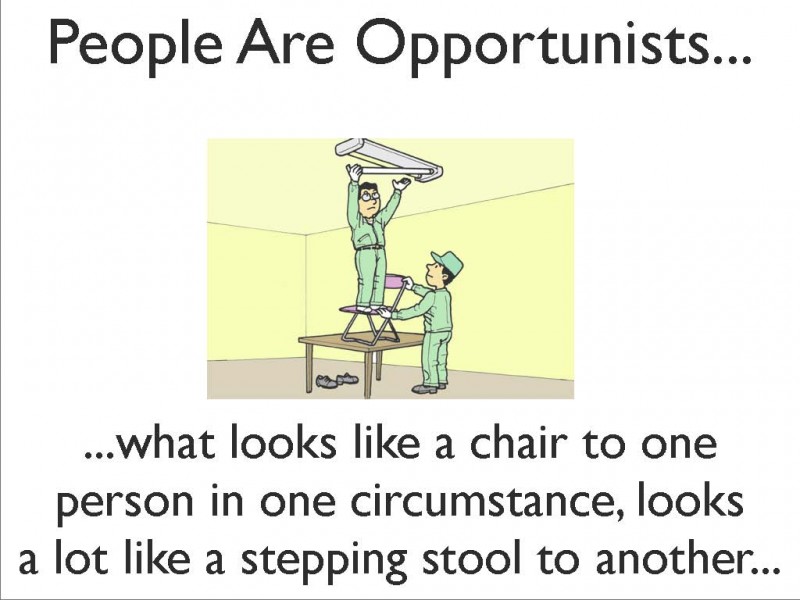
How many of you have ever used a chair to reach that jar of tomatoes on the top shelf? I do it all the time. I’m the shortest member of my family and I use chairs as my personal hight extension. And I know I’m not alone. People are opportunists. We use products to get what we want. We subvert existing technologies to reach our own goals.
From phones to cameras, from crisis mapping to photo editing, from news papers to forums, we manipulate and use tools and features to accomplish what we want, what we need. And we don’t necessarily use those tools for what they were designed for originally…
As product designers, we need to be able to harness this opportunistic behavior to accomplish what we want. We want to direct crowds down the path that’s most productive and more aligned with goals of our projects.
Two years ago, I came to The Soul of the Machine Conference to learn who are the players and what projects showed promise in using technology to advance human rights around the world. My employer didn’t want me to talk about what we were thinking about doing. I asked a lot of questions. And people questioned my motives—I was repeatedly asked if I was working for CIA! I was not. I was working for UCLA Law School, which was partnering up with International Criminal Court Office of the Prosecutor to develop an online system that would advance understanding of international criminal law and its application and make it more accessible to the general public.
Two years ago, I didn’t really know what we would end up designing. It took a considerable amount of time to figure things out. But in August of last year, we finally launched the Human Rights International Criminal Law Online Forum. And here it is!
The forum is a product of partnership of several very large, very bureaucratic institutions: UC and ICC. The forum’s design had to work very hard to satisfy the requirements of each of these organizations. And it had to work for the audience—the people who actually went there, read it, and participated in the discussion.
The stated Forum’s goals were:
- The discussions on the forum would help moot the international criminal law issues that were being pondered by the Office of the Prosecutor.
- The discussion was to allow groups and individuals with very varied opinions and political stake in the system to debate these issues openly and prior to doing so in front of the ICC judge.
- These discussions were to be public—anyone can read, anyone was free to post an idea, or a question, or give an opinion.
- These discussions would help everyone understand the complexities of issues before the court.
- And they would give some visibility to the decisions made by the Office of the Prosecutor.
The benefits for ICC OTP were:
- Highlight the Issues and Problems
- Layout the Legal Landscape
- Give visibility to decisions
- Create a community of practice and give the members a voice
- And do all of this in some very discrete amount of time
But who were the people who actually went and used our Forum? Well, while the Forum is free and open to everyone, it is a very select group of people who is interested in the issues we discuss and is able to discuss them at a level that we require. So we have a very select audience. It is the top thinkers in the field. And it is those who care deeply about those specific issues.
And as all online forums, the audience is divided among the “lurkers”—those who only go and read the comments and opinions of others—and the active participants who write their opinions down and make them public.
When we designed the system, what we wanted to do was make sure that we give as much support and explain the benefits to our audience as to move them from passive readers to active writers.
So what are the benefits to being an active member for the audience of UCLALawForum?
Well, like all people, we all like to be recognized for what we do. Everyone Googles themselves. And association with a high profile forum is good for personal SEO.
On a more serious note, by participating in the forum, a person can create a record of their position on the issue. For academics and politicians it’s a plus.
And so is the association with ICC and the “top” thinkers in the field of international criminal law. Again this is good for personal search engine optimization.
And finally, people want to do good. I work to try and advance the cause of human rights because I think it is the right thing to do. The members of the forum that are active participants feel the same.
To be successful, we needed to develop support structures into the forum that would push forward the individual benefits of participation while preserving the institutional needs of ICC and UC.
The Forum is only valuable if it is a valuable tool to the Prosecutor. The forum is only place that allows individuals, albeit with Internet connection, to tell their opinions to the ICC and ICC OTP. This is a unique and amazing opportunity for some.
But to make it work, we have to start with a particular question of “interest to the prosecutor.” And there it is. The current prosecutor is Luis Moreno-Ocampo. The question you see is the second for the forum and it deals with arrest of Al Bashir.
How do we arrest a sitting head of state that is accused of genocide? Bashir is still free. So this is a VERY difficult issue. And in order to explain the complexities, we created a detailed framing for OTP’s question—you can see it in the orange block. We also developed background materials. The site hosts the best version of the Statue of Rome. To implement laws, one needs to understand what they are, and we provide the tools for those who are interested.
So staring with the question from the Prosecutor, we frame the issue and research it and put together a package of background materials.
On the bottom of the screen shot you can see a link to the extensive background section.
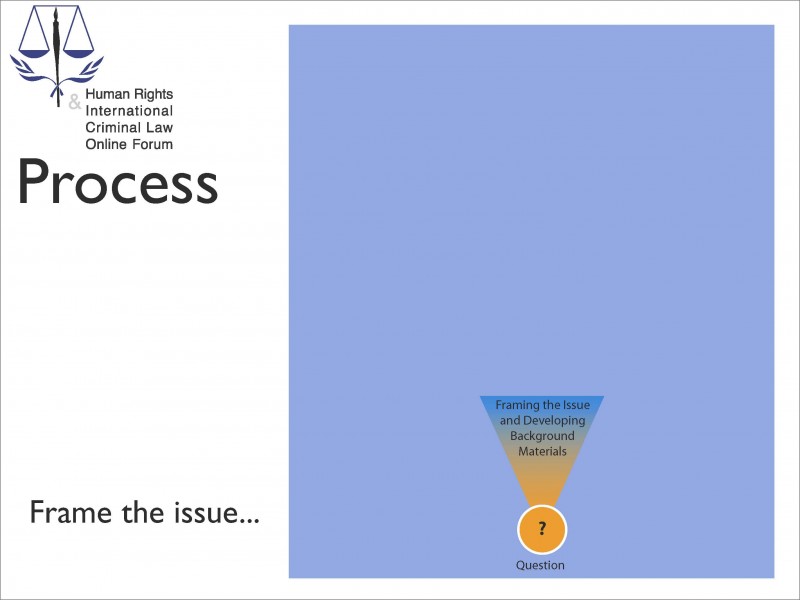
But the question, even well-researched, is not enough to get the discussion going. So we research and find the top thinkers for each particular issue under discussion of the forum and ask them to write a journal-like article that lays out the legal landscape for the question.
For the Darfur issue, we had 5 invited experts. They are featured on the home page, in the center column. When people visit the forum, they can quickly orient themselves to the problem under discussion, why it’s important, and how it is thought about in the community.
Together, the question + the framing + the background + the experts, form the foundation, the seed of the debate.
And as you can see, with each addition of content, the number of people involved with the issue increases. At this point we also develop our marketing plan for the question. We write our press releases and get ready to go public.
Then we finally open up the problem to the community.
We continuously market and promote the forum.
And we will create a number of books that encapsulate each issue and make them available to the libraries and institutions around the world.
Let me give a quick word now to Diffusion of Innovation.
I’ve started by saying that UCLALawForum is targeting a very small audience—those who are interested in a particular question and who have the educational background to be able to discuss this issue.
How can we expand our reach?
One way is to broaden the topic. Another is to lower the level of discussion.
Now we would reach a larger audience, but the usefulness of the forum would be diminished. So this is not the direction we are taking.
Instead, we are working to add more and more topics of interest, more and more questions from the prosecutor.
With each question, the number of those interested in the forum increases.
Over time, we hope to reach a much broader audience, even as we maintain the high level of discourse.
To give you a quick bit of data:
- We launched at the end of August/ beginning of September of 2010.
- The first question dealt with the war crimes committed during the Gaza conflict and ICC’s jurisdiction to prosecute those crimes. The invited experts generated over 30,000 words of content.
- The public discussion, which is still very active, is way over 30,000 words so far.
- The next issue was launched in January of this year.
- We are discussing Darfur. The experts contributed about 30,000 words and the public comments are at about 25,000 thousand.
We will be launching the next question next week!
So please visit our forum. There is a lot of very interesting information.
Thank you!

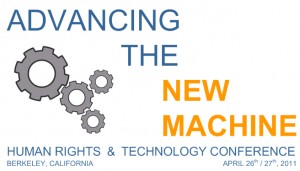
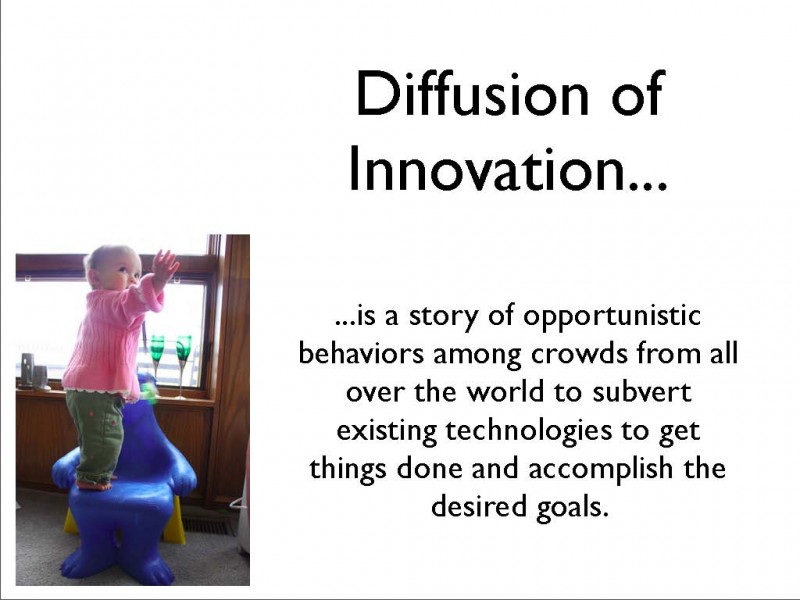
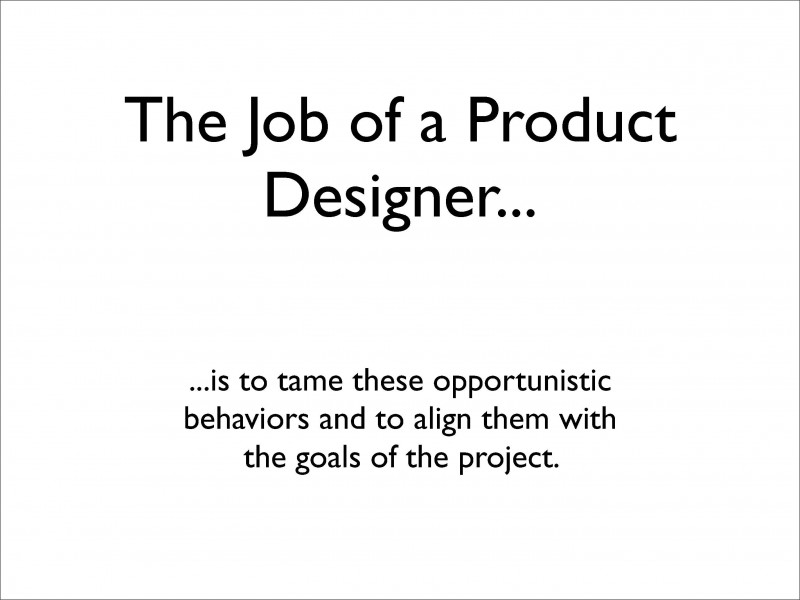
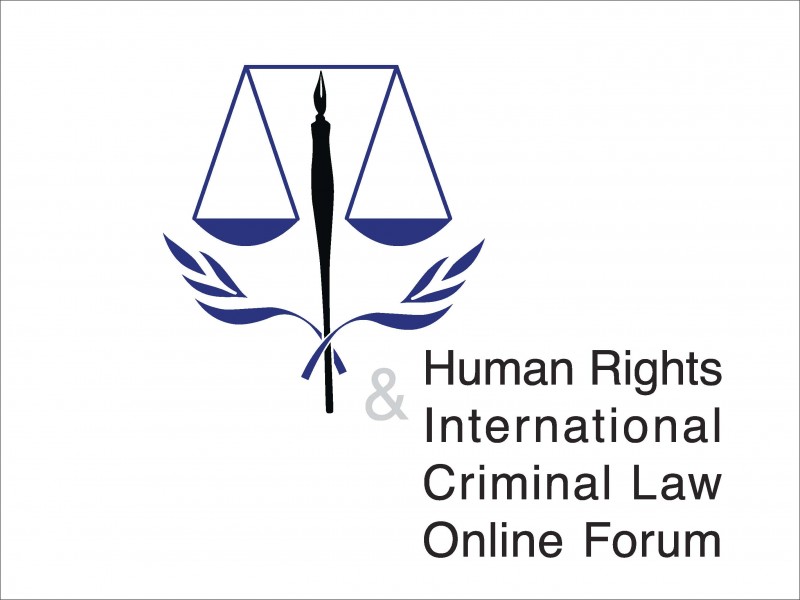
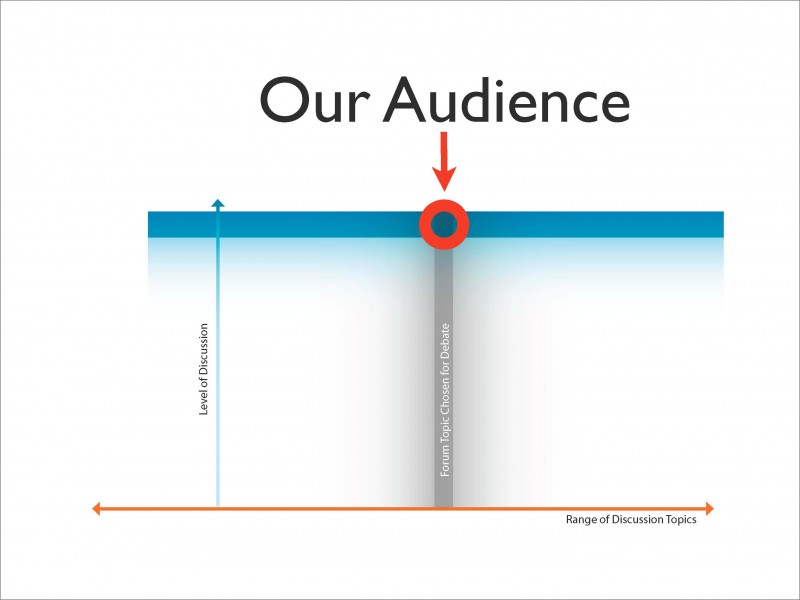
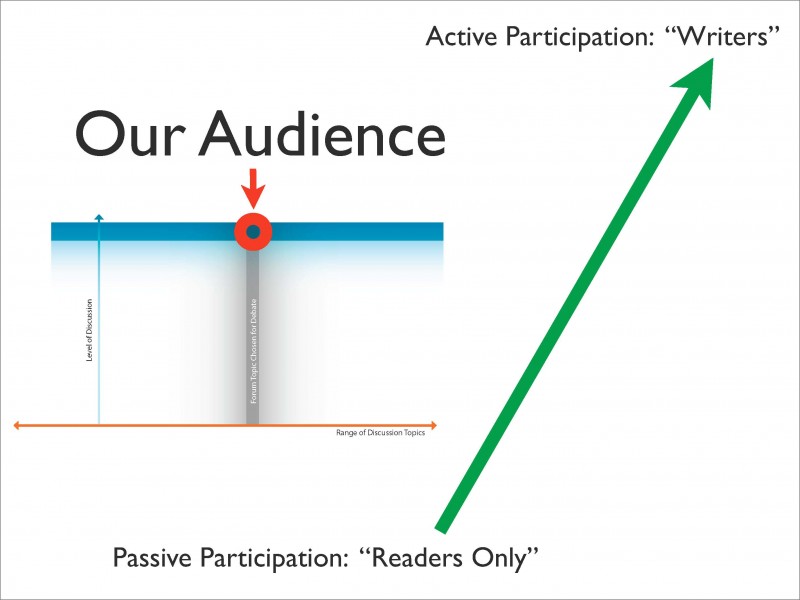
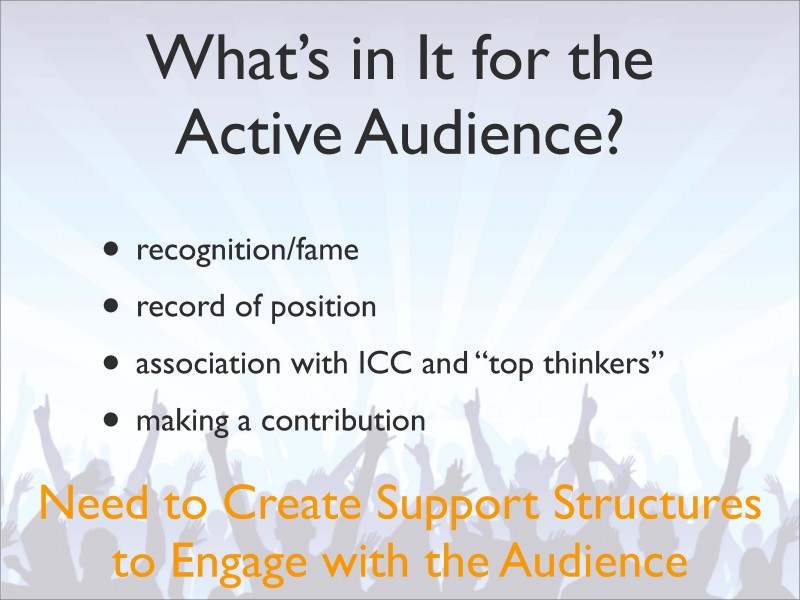
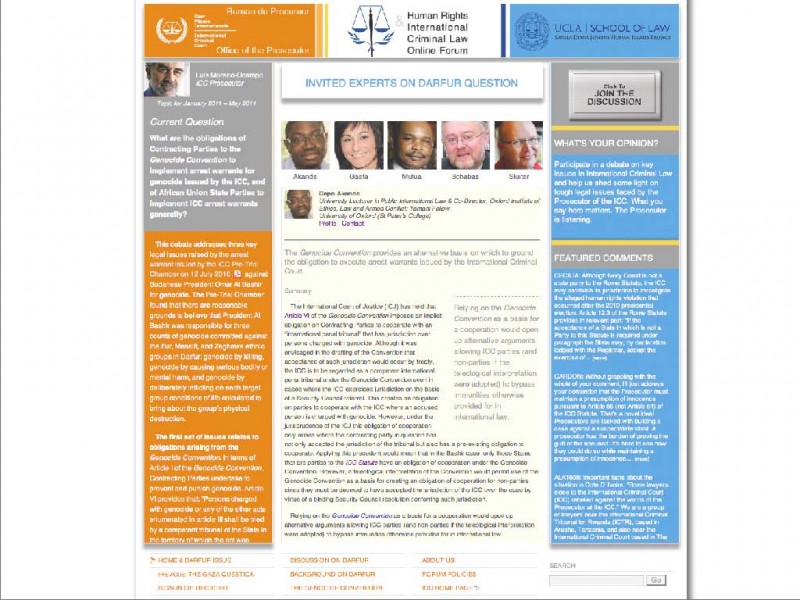
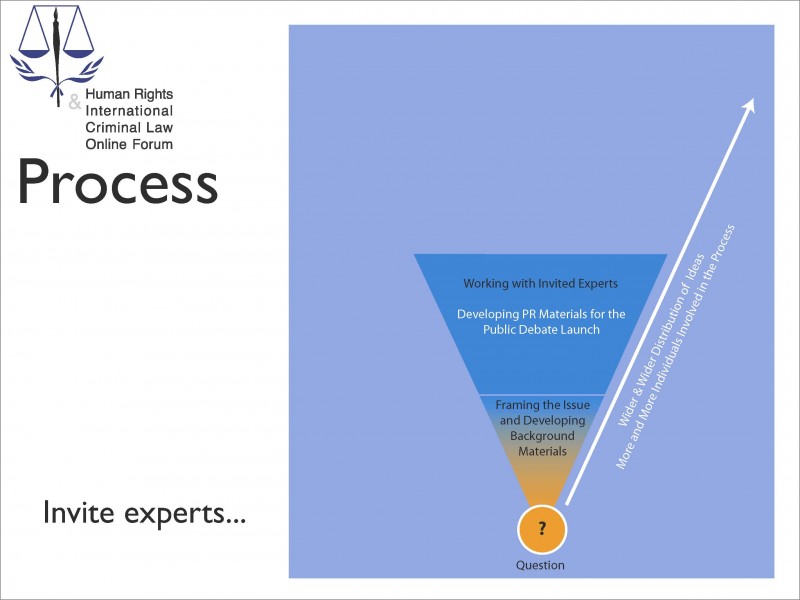
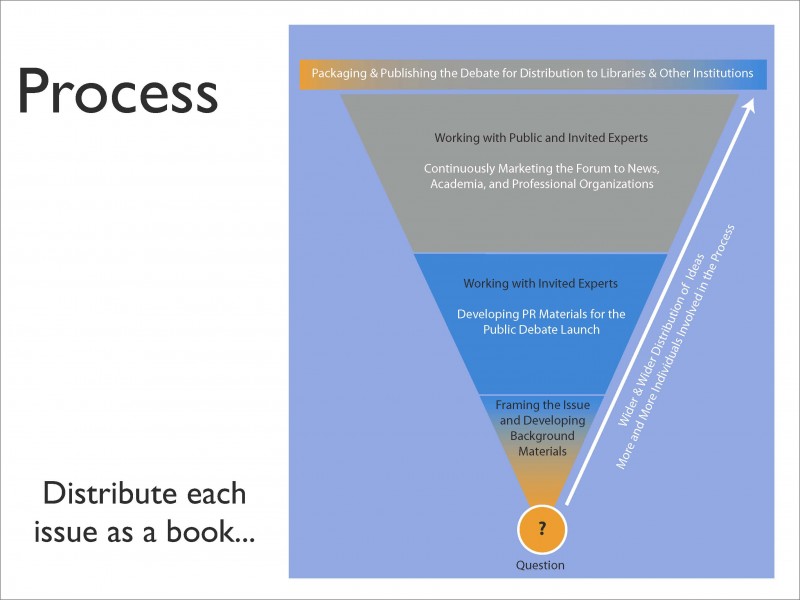
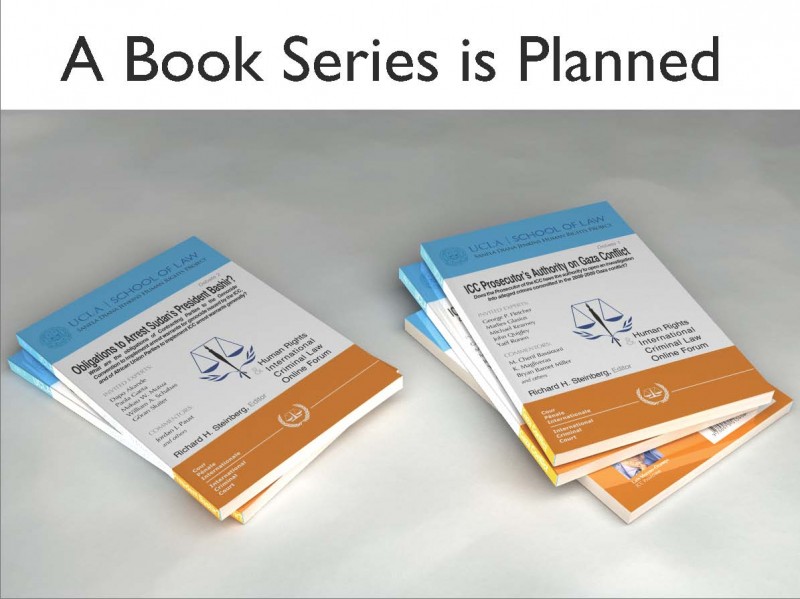
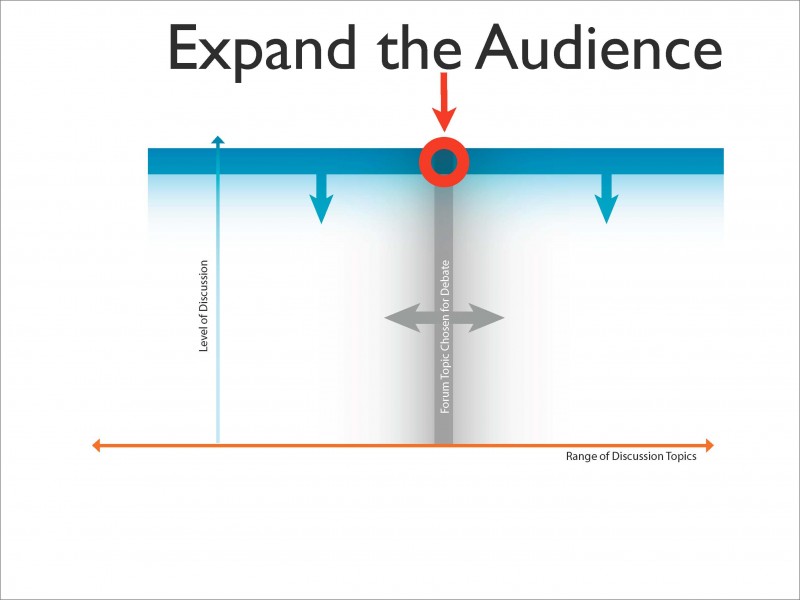
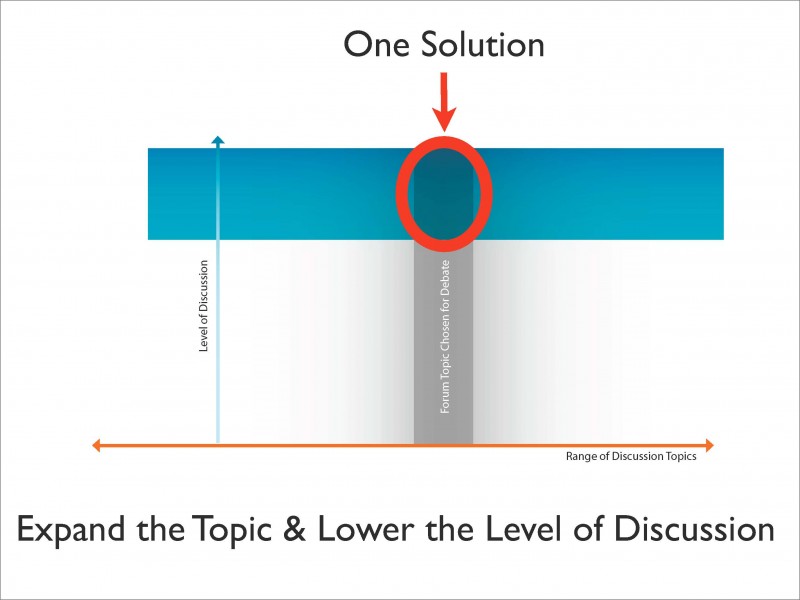
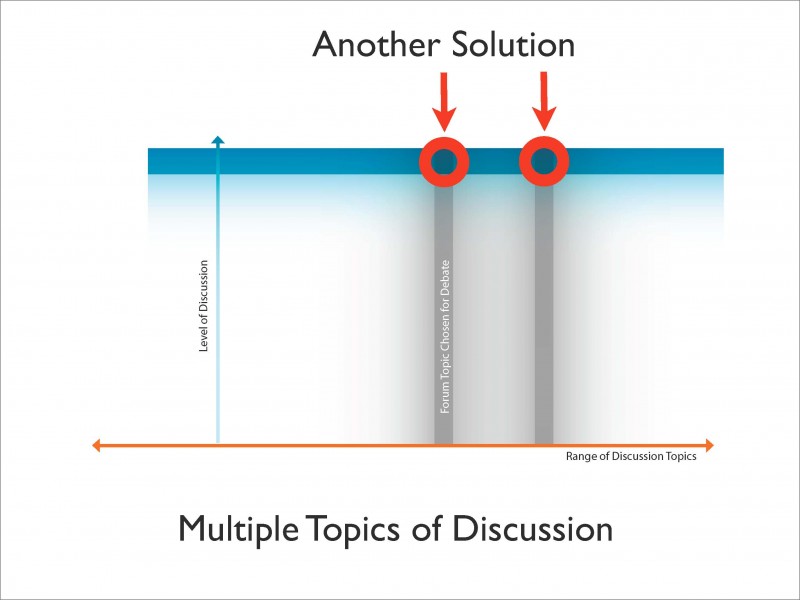
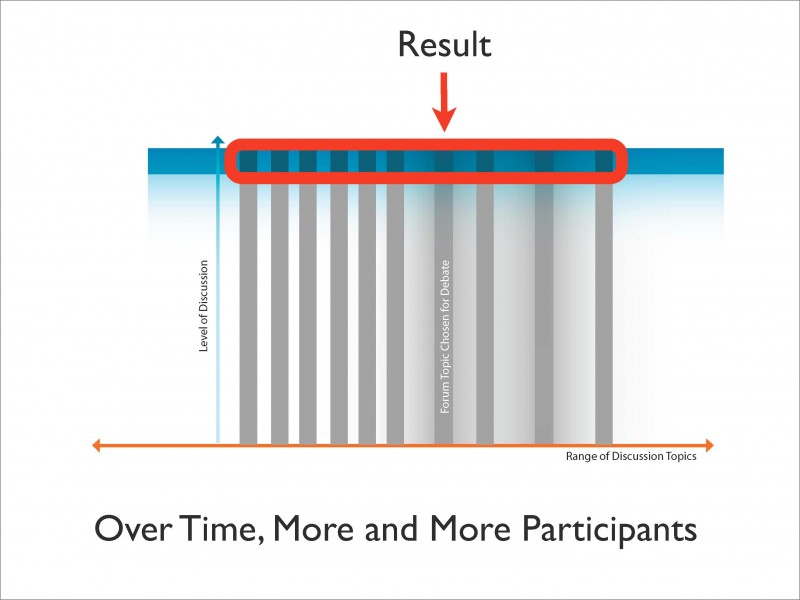
Here’s a previous post that used above ideas in for a general product: http://www.interfaces.com/blog/2011/02/remarkable-design/comment-page-1/#comment-86